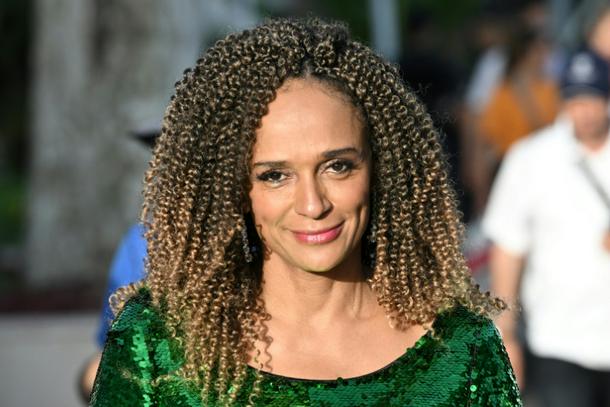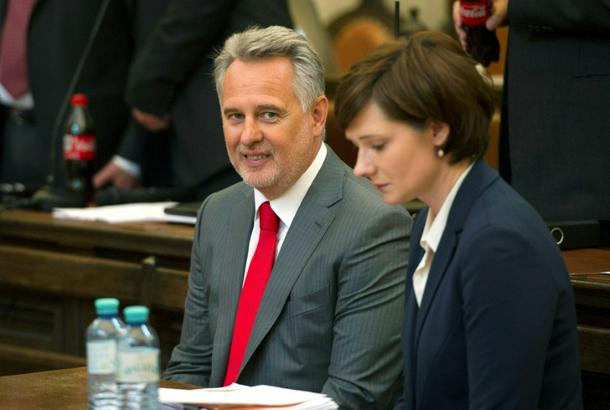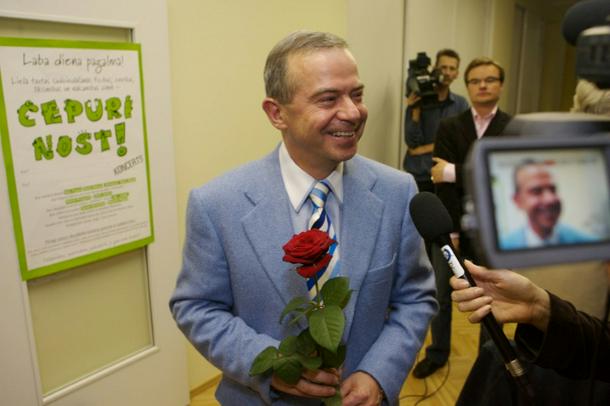
Isabel Dos Santos is one of three people dubbed 'infamous kleptocrats' by the UK government
London (AFP) - The UK government on Thursday announced sanctions on Angola’s Isabel dos Santos, the billionaire businesswoman and daughter of the country’s former president, as part of a new anti-corruption drive.
It also sanctioned Dmytro Firtash, a Ukrainian tycoon with links to the Kremlin, and Aivars Lembergs, one of Latvia’s richest people, who is accused of abusing his political position to commit bribery and money laundering, the foreign ministry said.
They are all subject to travel bans and asset freezes, it added in a statement, calling them “three infamous kleptocrats” and accusing them of “stealing their countries’ wealth for personal gain”.
Dos Santos, the ministry said, had “systematically abused her positions at state-run companies to embezzle at least £350 million ($443 million), depriving Angola of resources and funding for much-needed development”.
Considered Africa’s richest woman, she is currently wanted by Angolan authorities investigating alleged illegalities in the management of national oil company Sonangol between 2016 and 2017.
Her father, Jose Eduardo dos Santos, who died in 2022, ruled energy-rich Angola for 38 years until 2017.
She was sanctioned by the United States in 2021 for “involvement in significant corruption” and is barred from entering the United States.
Responding to the UK decision Thursday, dos Santos said that it was “incorrect and unjustified” and that she “intends to appeal”.
“I hope that the United Kingdom will give me the opportunity to present my evidence and prove these lies fabricated against me by the Angolan regime,” she said in a statement released in Portuguese.
“No court has found me guilty of corruption or bribery,” she added. “We are facing another step in Angola’s politically motivated campaign of persecution against me and my family.”
- ‘Ill-gotten gains’ -
Firtash is a one-time ally of ousted pro-Russian Ukrainian president Viktor Yanukovych.

Ukrainian tycoon Dmytro Firtash is also sanctioned
He is currently in Austria fighting extradition to the United States, where he is wanted on bribery and racketeering charges.
In June 2021, Ukrainian President Volodymyr Zelensky signed a decree imposing sanctions on Firtash, including the freezing of his assets and withdrawal of licences from his companies, after accusing him of selling titanium products to Russian military companies.
”(Firtash) extracted hundreds of millions of pounds from Ukraine through corruption and his control of gas distribution and has hidden tens of millions of pounds of ill-gotten gains in the UK property market alone,” the UK government statement added.

Britain slapped curbs on Latvia's Aivars Lembergs for bribery and money laundering
Sanctions would also be imposed on his wife, Lada Firtash, and UK-based Denis Gorbunenko, a UK-based financial “fixer”.
Lembergs, a former mayor, is accused of bribery and money laundering. His daughter, Liga Lemberga, is also sanctioned.
In 2021, a Riga court found him guilty of 19 charges including extorting bribes, forging documents, money laundering and improper use of office.
The measures are the latest under 2021 anti-corruption sanctions legislation brought in by the previous Conservative administration.
“These unscrupulous individuals selfishly deprive their fellow citizens of much-needed funding for education, healthcare and infrastructure – for their own enrichment,” said Foreign Secretary David Lammy, a member of the UK’s new Labour government elected in July.
”I committed to taking on kleptocrats and the dirty money that empowers them when I became Foreign Secretary… The tide is turning. The golden age of money laundering is over,” he said.
The Conservative government of Boris Johnson announced the first sanctions under its new global anti-corruption regime in 2021.
Britain had previously followed the European Union’s sanctions regime but since leaving the bloc in January 2020 struck out alone with its own policy.
The global anti-corruption sanctions were designed to prevent Britain from being a haven for illicit funds and money laundering.